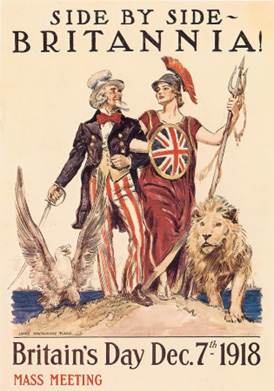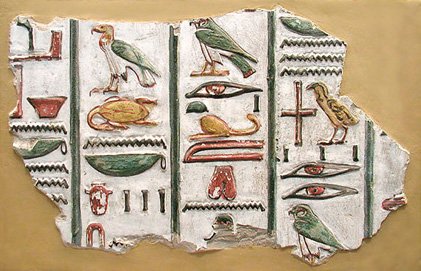HiSET Social Studies Study Guide: History
History questions will assess your knowledge and understanding of:
- Historical sources and different historical perspectives
- Connections between different time periods
- Different eras in U.S. and world history
Note
We use BCE (Before Common Era) and CE (Common Era) to indicate years. BCE is another way of saying BC (Before Christ), and CE is another way of saying AD (Anno Domini). These are the same time periods, just with different terminology.
Ancient Civilizations
Indigenous North and South America (About 20,000 BCE to 1500 CE)
During the last ice age, a land bridge connecting modern Russia and Alaska let people travel from Asia to North America. These settlers would create many indigenous cultures, such as the Mayan and Incan Empires. These civilizations fell due to European, primarily Spanish, colonization.
Ancient Egypt (About 3100 BCE to 300 BCE)
The ancient Egyptians built pyramids, mummified the dead, and used hieroglyphics to preserve their history and culture. They were conquered by the Greeks and then the Romans.
Ancient Mesopotamia (About 3100 BCE to 539 BCE)
Located in modern-day Iraq, ancient Mesopotamian civilizations developed between the Tigris and Euphrates rivers. These civilizations developed the 24-hour day and made significant advancements in mathematics and agriculture.
The Greeks and Romans (About 500 BCE to 476 CE)
The Greek and later Roman Empire dominated Mediterranean life. The ancient Greeks were the first to use democracy. Rome started as a republic before becoming a vast empire.
Imperial China (About 200 BCE to 1911 CE)
Chinese dynasties made many technological and social advancements, such as gunpowder and printing. The earliest dynasties began construction on the Great Wall of China to defend against invading armies.
Major Religions
Judaism (Began about 1800 BCE)
Judaism is the most ancient Middle Eastern religion still in existence. Believers produced texts such as the Torah and Hebrew Bible (i.e. the basis for the Christian Old Testament).
Hinduism (Began about 1750 BCE)
Hinduism began as a blend of ancient beliefs and traditions. More than 80% of modern Indians follow Hindu teachings, such as believing in many gods and cremating the dead near a river or stream.
Buddhism (Began about 600 BCE)
Founded by the Buddha in India, Buddhism quickly spread throughout Asia. Beliefs include rebirth and nirvana. Like other religions, Buddhism has many sects.
Christianity (Began about 50 CE)
Founded by Jesus and his disciples, Christianity quickly replaced many pagan religions in the Middle East and Europe. Most of Europe was Christian by 1000 CE.
Islam (Began 610 CE)
Founded in the Arabian Peninsula by Mohammed, the religion quickly spread to other parts of the Middle East, North Africa, and even Europe. The religion calls on believers to make a pilgrimage to Mecca in Saudi Arabia.
Eras and Major Events
The Stone and Bronze Ages (About 4000 BCE to 1200 BCE)
The Stone and Bronze Ages were some of the earliest in human history. Humans used simple tools to farm, build, and wage war against one another.
The Dark/Middle Ages (About 450 CE to 1400 CE)
The Dark/Middle Ages refers to the roughly 1,000-year period between the fall of the Roman Empire and the Renaissance. Many European kingdoms existed and the majority of people lived in poverty.
The Renaissance (About 1400 CE to 1600 CE)
The Renaissance (meaning “rebirth”) was a cultural movement impacting art, architecture, and other fields. Artists such as Raphael advanced artistic styles, while discoveries in science and medicine improved people’s lives.
The Enlightenment (About 1500 CE to 1750 CE)
During the Enlightenment, European thinkers rediscovered Greek and Roman texts discussing democracy and the rights of people. This rediscovery led to democratic ideas taking hold in Europe and the American colonies.
The Industrial Revolution (About 1760 CE to 1840 CE)
Technological discoveries that began in England led to rapid development worldwide, including trains, steamships, and the telegraph.
The Great Depression (1929 – 1941 CE)
Stock speculation in the 1920s crashed in the U.S. and world stock markets. The following economic downturn led to the New Deal in the United States and the rise of dictatorships in Europe.
The Information Age (About 1950 CE to Present)
Advances in computer technology and the internet continue to change how people live and interact.
Notable Figures
Alexander the Great (356 – 323 BCE)
Heir to the throne of modern-day Macedonia. Conquered much of the known world before his death at the age of 33.
Julius Caesar (100 – 44 BCE)
Roman general whose actions led to the downfall of the Roman Republic. Assassinated on the Ides of March.
Leonardo Da Vinci (1452 – 1519 CE)
Italian painter and inventor. Accomplishments include painting the Mona Lisa.
William Shakespeare (1564 – 1616 CE)
English playwright who wrote many classic works still known today, such as Romeo & Juliet.
George Washington (1732 – 1799 CE)
General who led the American Revolution. Later became the first U.S. president.
Napoleon Bonaparte (1769 – 1821 CE)
French general who overthrew the French First Republic in 1799. A coalition of European powers brought his rule to an end in 1815.
Charles Darwin (1809 – 1882 CE)
English naturalist who developed the theory of evolution.
Robert E. Lee (1807 – 1870 CE)
American general who sided with the Confederacy during the American Civil War.
Abraham Lincoln (1809 – 1865 CE)
American president who led the Union through the Civil War.
Queen Victoria (1819 – 1901 CE)
English monarch who reigned when the British Empire was at its height.
Ulysses S. Grant (1822 – 1885 CE)
Union general during the American Civil War. Would later serve as U.S. president.
Adolf Hitler (1889 – 1945 CE)
German dictator during World War II. Under his leadership, Germany committed the Holocaust against the Jewish people of Europe.
Martin Luther King, Jr. (1929 – 1968 CE)
American civil rights activist who gave the influential “I Have a Dream” speech in Washington, D.C.
Wars and Revolutions
American Revolution (1775 – 1783 CE)
The United States won its independence from Great Britain. France gave significant monetary and military support to the American cause.
French Revolution (1789 CE)
France overthrew and executed King Louis XVI. They established a republic that was overthrown by Napoleon.
American Civil War (1861 – 1865 CE)
American states fought over the issue of slavery. This led to the defeat of slaveholding states and the constitutional abolition of slavery.
Spanish-American War (1898 CE)
The United States won a brief war against Spain and gained its overseas possessions, including the Philippines and Cuba.
World War I (1914 – 1918 CE)
Fought mainly in Europe, WWI was known for brutal trench warfare and the downfall of many empires.
Russian Revolution (1917 CE)
A consequence of World War I, the Russian Revolution established a Communist government in Russia that would last until 1991.
World War II (1939 – 1945 CE)
Axis and Allied forces battled worldwide for dominance. The war ended with the conquest of Germany by the Allies and the United States dropping two nuclear bombs on Japan.
Korean War (1950 – 1953 CE)
Communist forces from North Korea invaded South Korea, leading to a brutal war that left the Korean peninsula split into two countries.
Vietnam War (1955 – 1975 CE)
A centuries-long fight for independence by the Vietnamese people escalated when the U.S. allied with South Vietnam in the 1950s. North Vietnam would unify the country after the U.S. left the war in 1973.


